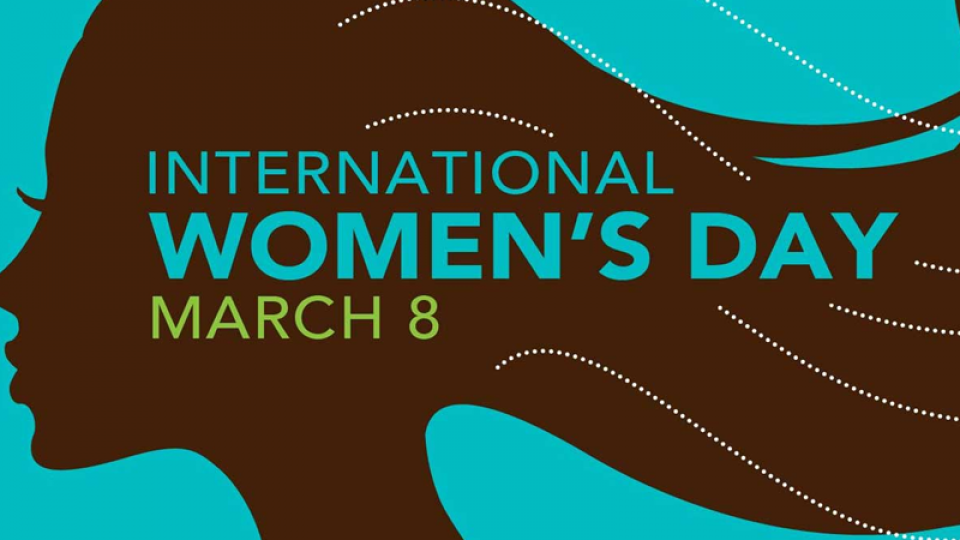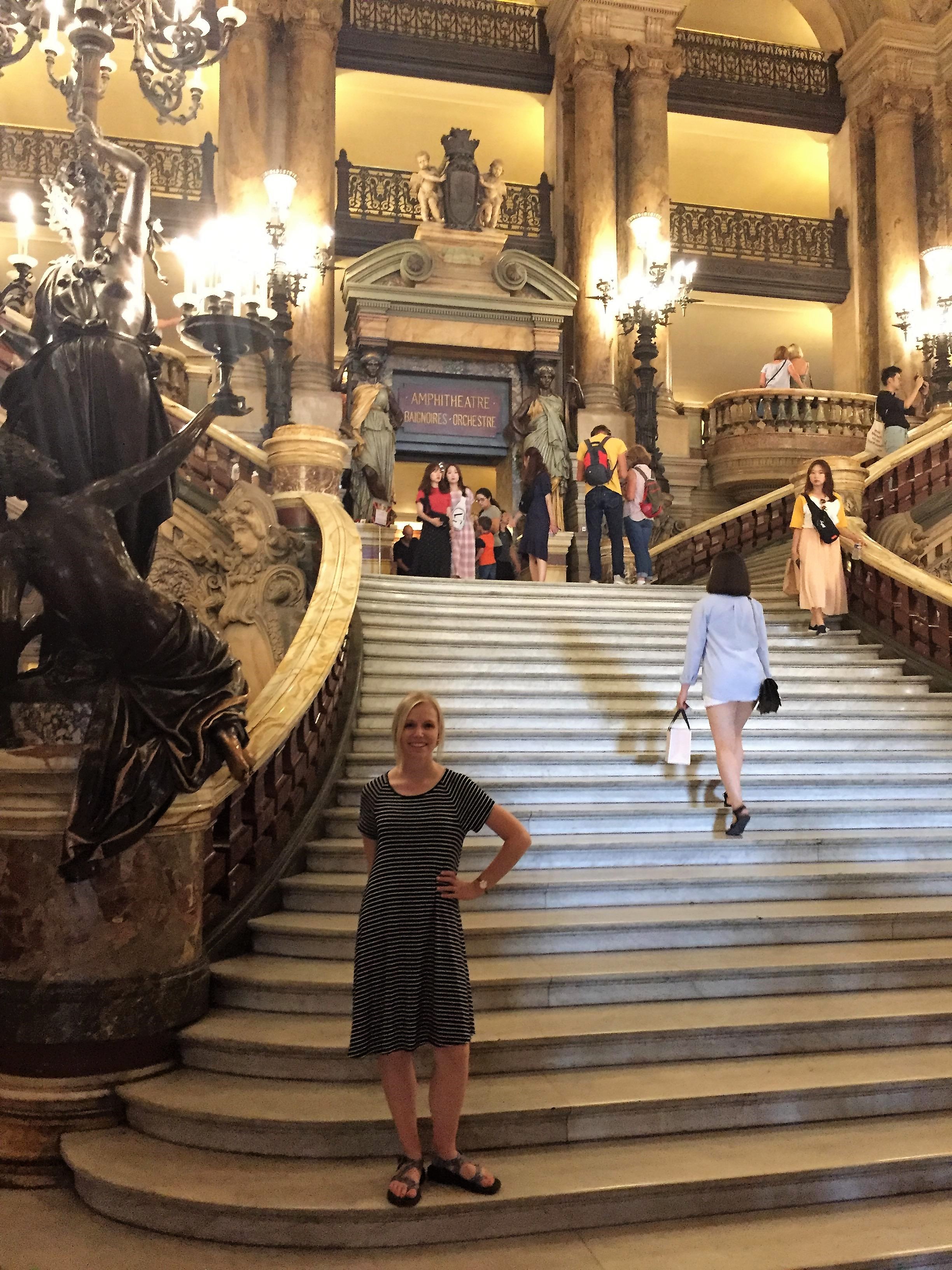#BalanceforBetter

[minti_dropcap style=”box”]W[/minti_dropcap]hen Heather Ely purchased the college text book for her first music history course, she eagerly flipped through looking for female composers — and found none. Almost ten years later when creating the curriculum for her music students at Lake Park Elementary in Bethany, OK, available resources highlighted the same male composers who dominated her own education. She wondered, “Are there truly this few women who influenced music composition worth noting?”
 Anna Beer’s book Sounds and Sweet Airs: The Forgotten Women of Classical Music provided a definitive answer and the basis for Heather’s Fund for Teachers fellowship. Last summer, she explored in five European countries the lives of women highlighted in Beer’s work to compare struggles with male counterparts and enrich students’ understanding of women’s compositional voices in four periods of music history.
Anna Beer’s book Sounds and Sweet Airs: The Forgotten Women of Classical Music provided a definitive answer and the basis for Heather’s Fund for Teachers fellowship. Last summer, she explored in five European countries the lives of women highlighted in Beer’s work to compare struggles with male counterparts and enrich students’ understanding of women’s compositional voices in four periods of music history.
“Beer recounts the sexism and frustrations that these women faced in the pursuit of their art and questions the impact of the loss of their legacies in our cultural heritage,” said Heather. “Gender determined so much of what the classical music world classifies as canonical, but Beer exposes the dangers of silencing these prolific voices in our society.”
Heather’s efforts to amplify their voices began in Venice with Baroque period, studying the life of composer Barbara Strozzi and her male contemporary, Antonio Vivaldi. A night train took her to Vienna and the Classical period, where she examined the legacy of Marianna Martines compared to Joseph Haydn. Leipzig, Germany, and the Romantic period presented opportunities to evaluate the relationship between piano prodigy, Clara Schumann, and her composer husband, Robert Schumann. Renegade musicians from the Impressionist and Modern periods came to life in Paris’ bohemian Ninth Arrondissement, artists such as Nadia and Lili Boulanger. Finally, the Women’s Suffragette movement in London provided the backdrop for Heather’s consideration how Elizabeth Maconchy and Benjamin Britten’s experiences differed, despite having the identical education.
- St. Mark’s Basilica, where Barbara Strozzi’s composition teacher played the organ
- Learning about the world of Maurice Ravel, opera and ballet at the Paris Opera House
- Exploring the Hofburg Palace and the life of composer Marianna Martines
This fall, music education for second-fifth graders has #balanceforbetter, the theme of this year’s International Women’s Day celebrated globally tomorrow, March 8. Specific changes Heather made post-fellowship include:
- Examination of a different musical period she researched per grade
- Researching what life was like for one male composer and one female composer during the musical period they study
- Listening to and analyzing works of both male and female composers from the musical
period being studied - Exploring history trunks she created with artifacts from her fellowship, and,
- Publication of a book by fourth and fifth graders containing research of a male or female composer.
“This fellowship awakened a passion and thankfulness for the lives of all the women who came before me and fought for all the freedom and rights I enjoy today,” said Heather. “It also gave me a greater desire to share the narratives of people from all races and cultures. I know that this experience has changed my view of my abilities as both an educator and leader. I am more excited to take risks if it means better understanding and growth for my students and for me.”

Heather with her fourth grade music students
[minti_divider style=”3″ icon=”” margin=”20px 0px 20px 0px”]
 Heather is an elementary music teacher in northwest Oklahoma City for Putnam City Schools. She has spent all four years of her teaching career at Lake Park Elementary, and currently serves on her school’s leadership team as the Specials Team Leader. Heather enjoys helping her students explore culture and history through music. You can see more images from her fellowship on Instagram @elys_musicalmusings2018, where we found this image and accompanying description:
Heather is an elementary music teacher in northwest Oklahoma City for Putnam City Schools. She has spent all four years of her teaching career at Lake Park Elementary, and currently serves on her school’s leadership team as the Specials Team Leader. Heather enjoys helping her students explore culture and history through music. You can see more images from her fellowship on Instagram @elys_musicalmusings2018, where we found this image and accompanying description:
This year marks the 100th anniversary of women getting the vote in the U.K. The Museum of London chronicles the bravery of the women involved in this movement. One such women was composer Dr. Ethel Smyth. Ethel was very close with Emmeline Pankhurst, and in 1912, she was arrested for her militant efforts to get the vote. Ethel and many other women were sent to Holloway Prison for their actions. What happened next is just my favorite! Women in the prison yard began singing “The March of the Women” which was composed by Ethel. She heard them and from her cell began to conduct their voices with her toothbrush! What resilience and courage these woman had! Thankful that their efforts prevailed so that I might have the rights I have today!
 Back to Blogs
Back to Blogs

